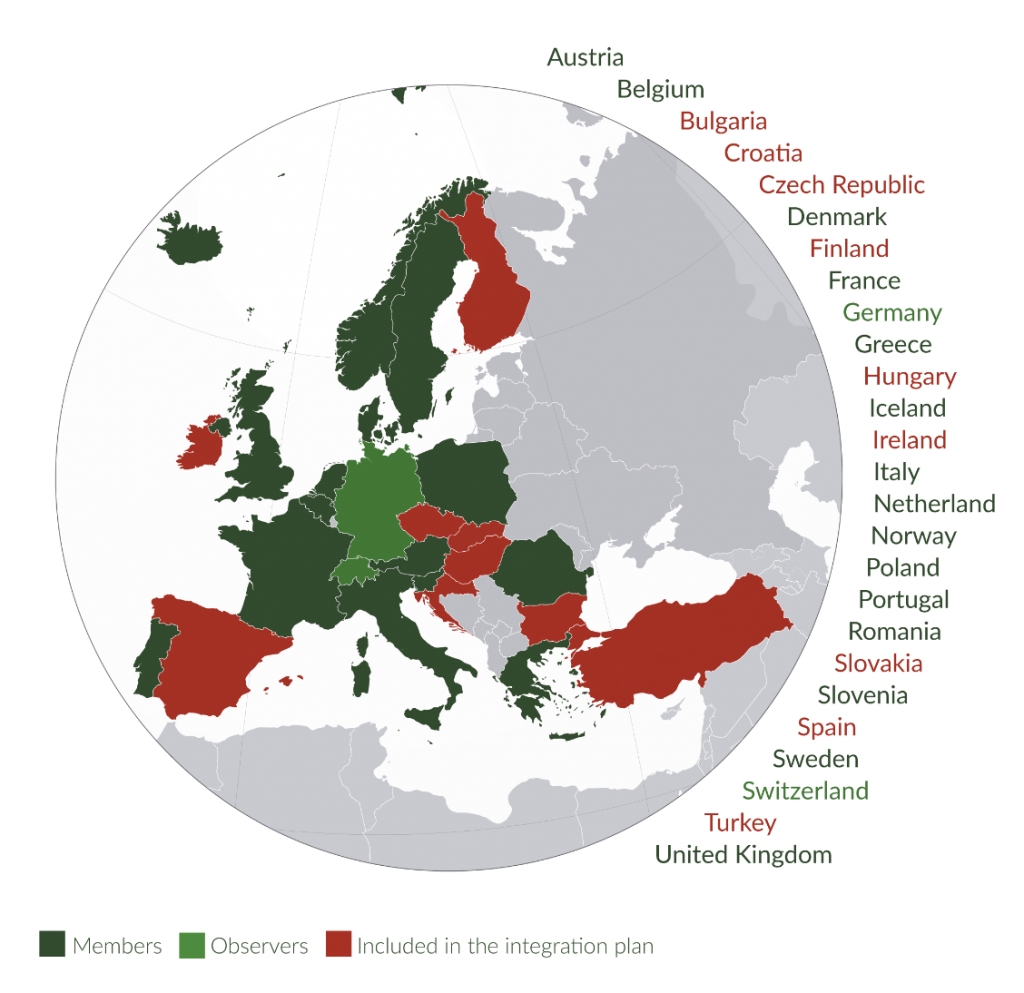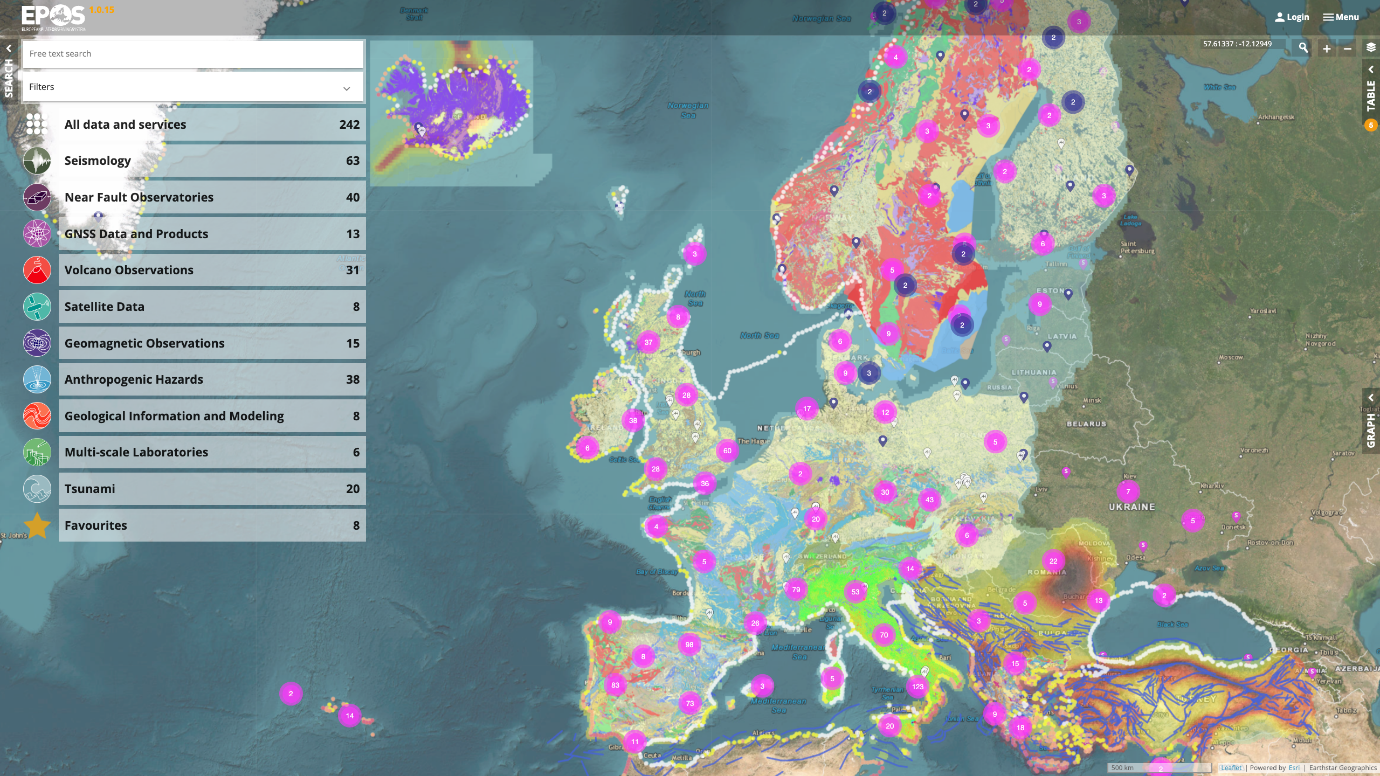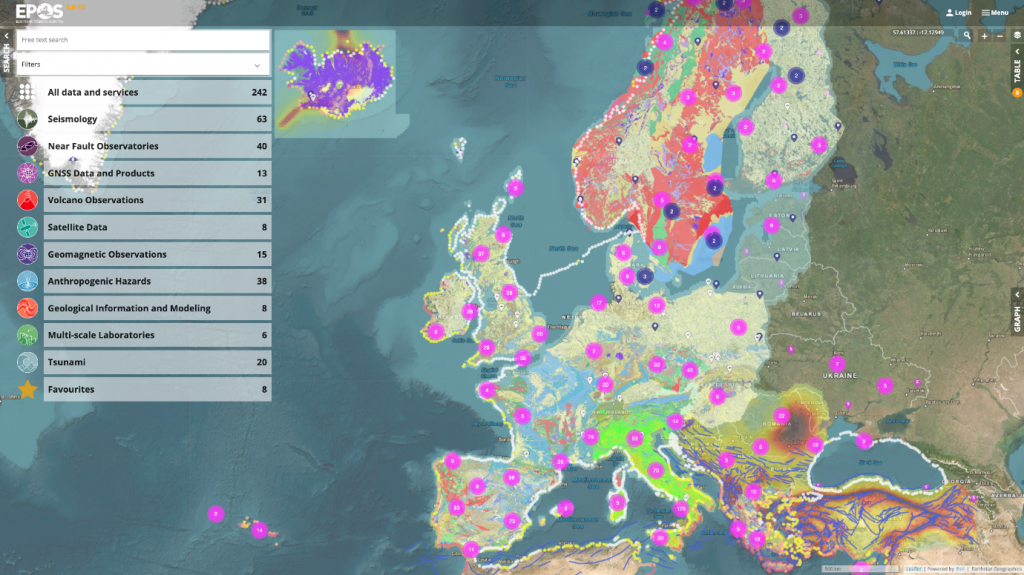Official launch of the EPOS Data Portal for Solid Earth Sciences
The platform “EPOS Data Portal”, the first and only pan-European research infrastructure for Solid Earth Sciences, is being presented at the EGU General Assembly 2023 (April 25, 2023). The EPOS Data Portal will allow scientists, students and stakeholders to access multidisciplinary scientific data and products, promoting open science research to better understand Earth system dynamics. The Royal Observatory of Belgium is strongly involved in both data and service provision to EPOS.
After more than 20 years of research and innovation, the European Plate Observing System (EPOS) is officially presenting its central Data Portal to the scientific community at European Geosciences Union (EGU) meeting in Vienna on April 25, 2023 (EGU23) (further information here).
Born in 2007 with the aim of developing a long-term integration plan for sharing scientific data and products, EPOS has integrated around 150 national research organizations from 25 European countries into a single distributed infrastructure. In 2018 EPOS obtained the legal status of ERIC (European Research Infrastructure Consortium) from the European Commission, with Belgium as one of its founding members.

Figure 2: EPOS members (dark green), observers (light green), and countries included in the integration plan but not in EPOS-ERIC (red).
EPOS is the first and only pan-European research infrastructure for solid Earth Science, integrating and harmonizing over 60 types of metadata from various disciplines. The data, products and services made available by the EPOS Data Portal are aimed at a large spectrum of users (scientific community, institutions, political decision-makers) and promotes the progress of open science research to better understand Earth system dynamics. As such, EPOS will drive research and innovation to help researchers and national governments in the mitigation of natural hazards, the sustainable management of georesources (raw materials, water and energy), etc.
Click here for more information on the EPOS architecture
Thanks to the support of the Belgian Science Policy Office (BELSPO), the Royal Observatory of Belgium (ROB) is strongly involved in EPOS. ROB offers data and services to both the GNSS (Global Navigation Satellite Systems) and Seismology thematic core services (TCS) of EPOS.
EPOS-GNSS will provide access to GNSS data, metadata and data products from more than 3000 GNSS stations, to allow for the precise measurement of ground deformations. ROB’s contribution to EPOS-GNSS is threefold: it is involved in its governance and coordination, delivers GNSS data from Belgian GNSS stations as well as GNSS stations belonging to the European EUREF network, and provides several pan-European GNSS Services. These services are: (1) a GNSS station metadata management service M³G and (2) a service monitoring the daily data quality of the EPOS GNSS stations.
EPOS-Seismology provides access to seismological and earthquake-related information, and is built on various European community infrastructures in seismology that coordinate and operate data services. ROB provides (1) seismic waveform data from the Belgian seismic network, (2) historical (pre-instrumental) macroseismic data, and (3) geological and paleoseismological data on the main seismogenic faults in Belgium.
Click here for more detailed information on ROB’s data and service provision to EPOS


